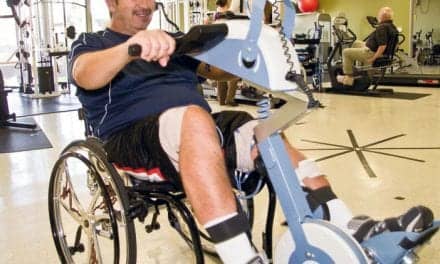Therapeutic singing could have the potential to provide an accessible and affordable treatment option to improve motor symptoms, stress, and quality of life for patients with Parkinson’s disease, suggest researchers from Iowa State University.
According to results from a pilot study, the benefits of therapeutic singing could go beyond improving respiratory and swallow control. The improvements the study’s participants are similar to the benefits of taking medication, the researchers note.
“We see the improvement every week when they leave singing group. It’s almost like they have a little pep in their step. We know they’re feeling better and their mood is elevated,” says Elizabeth Stegemöller, an assistant professor of kinesiology, in a media release.
“Some of the symptoms that are improving, such as finger tapping and the gait, don’t always readily respond to medication, but with singing they’re improving.”
Stegemöller, Elizabeth “Birdie” Shirtcliff, an associate professor in human development family studies; and Andrew Zaman, a graduate student in kinesiology, measured heart rate, blood pressure and cortisol levels for 17 participants in a therapeutic singing group. Participants also reported feelings of sadness, anxiety, happiness and anger. Data was collected prior to and following a one-hour singing session.
To determine the possible cause of these behavioral changes, the team analyzed the participants’ blood samples to measure levels of oxytocin (a hormone related to bonding), changes in inflammation (an indicator of the progression of the disease) and neuroplasticity (the ability of the brain to compensate for injury or disease) to determine if these factors can explain the benefits of singing, the release continues.
“Part of the reason cortisol is going down could be because the singing participants feel positive and less stress in the act of singing with others in the group. This suggests we can look at the bonding hormone, oxytocin,” Shirtcliff states. “We’re also looking at heart rate and heart rate variability, which can tell us how calm and physiologically relaxed the individual is after singing.”
The research builds upon the team’s previous findings that singing is an effective treatment to improve respiratory control and the muscles used for swallowing in people with Parkinson’s disease.
The current research was presented recently at the Society for Neuroscience 2018 conference.
[Source(s): Iowa State University, Science Daily]





